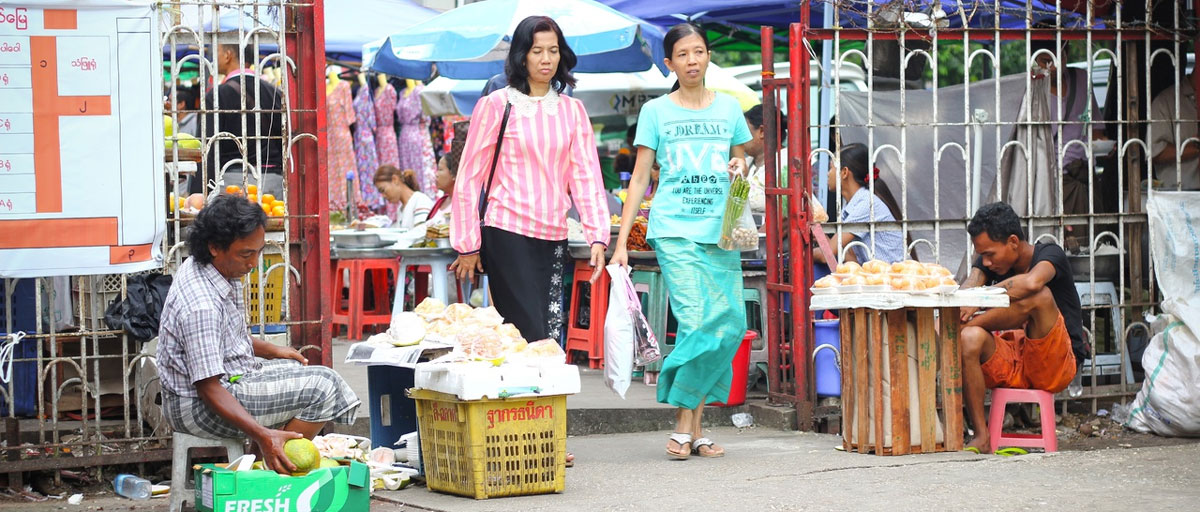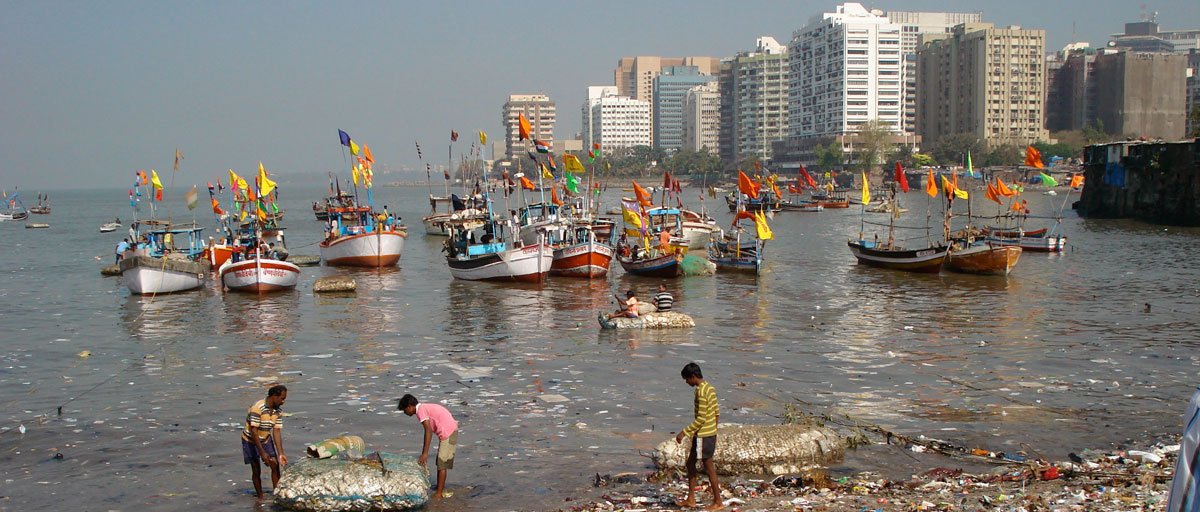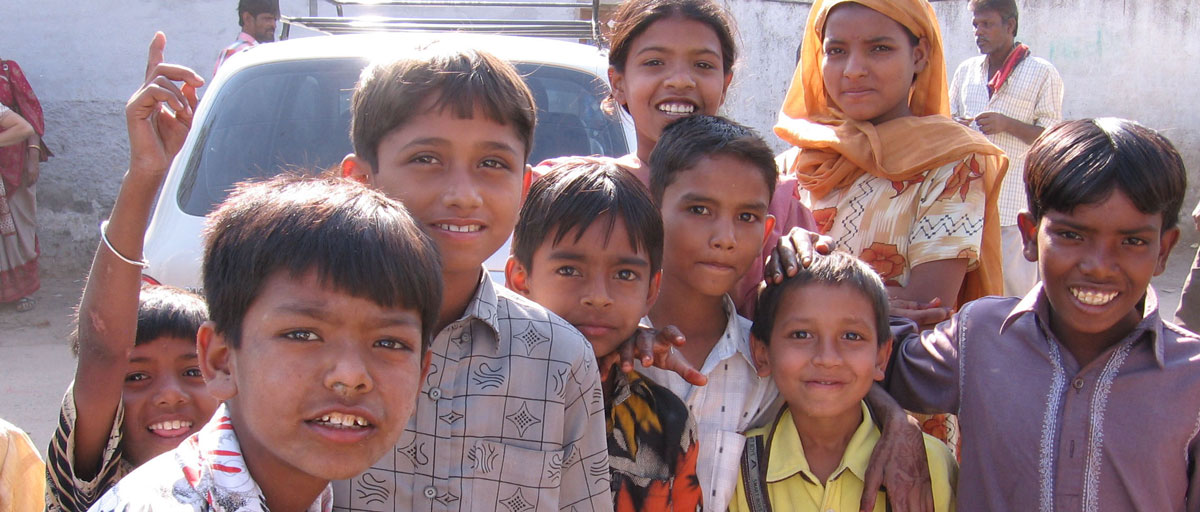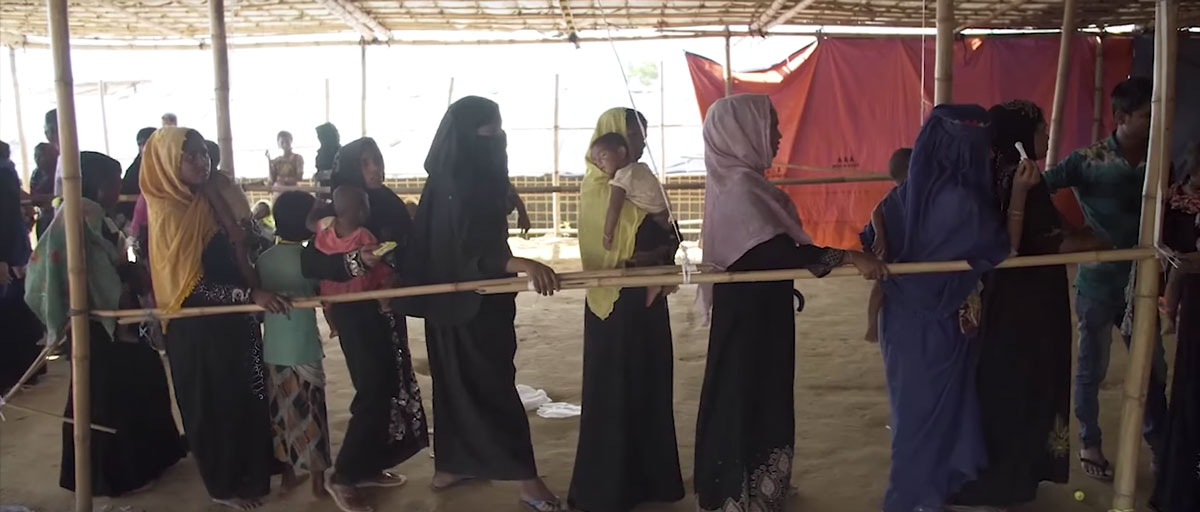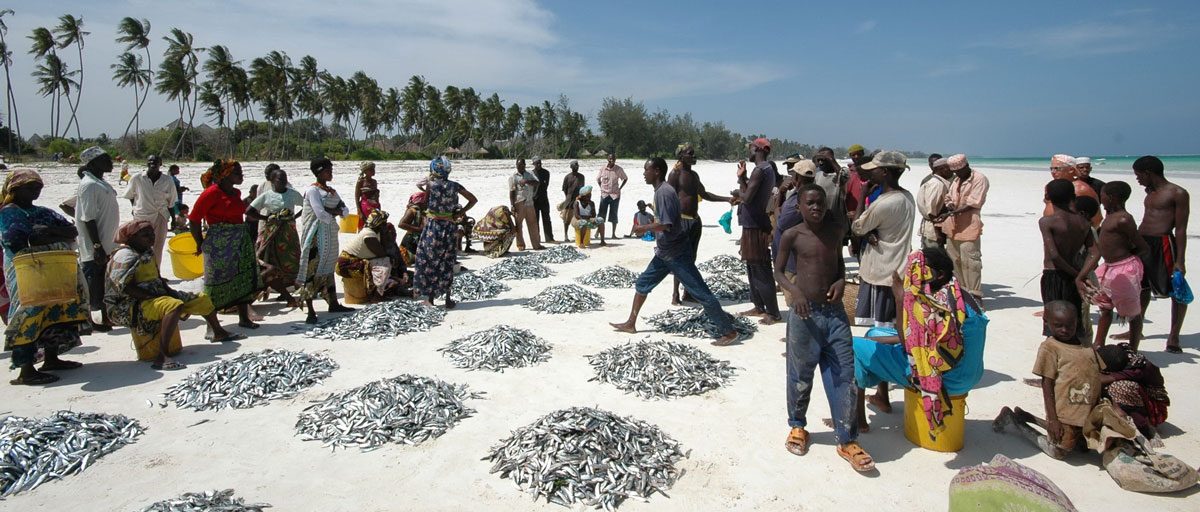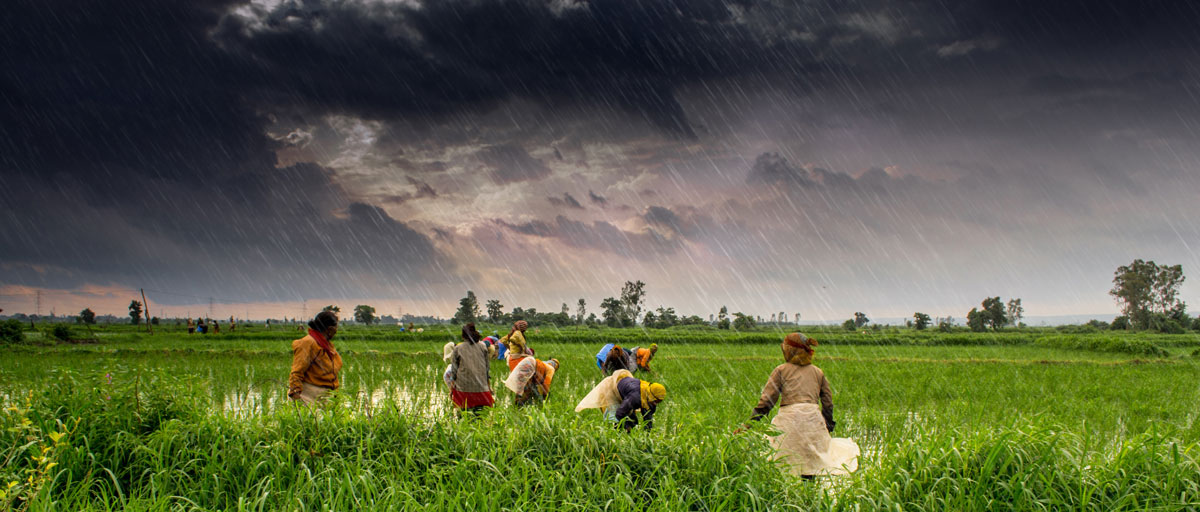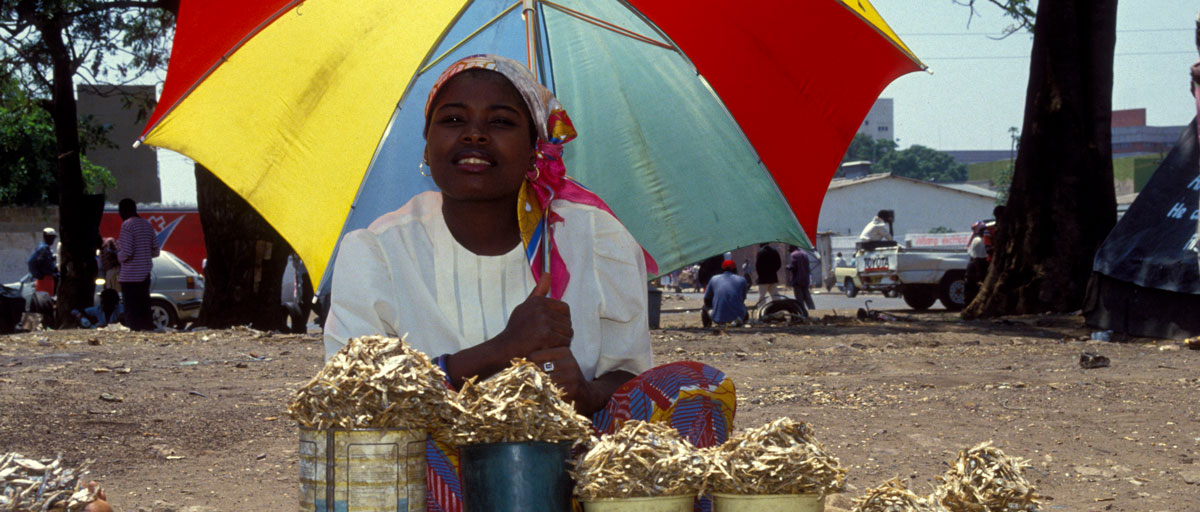
What tools do we have for imagining positive futures and how can we actually go about rethinking development? In a series of deep dives, centre researchers and partners will explain emerging concepts within sustainability science that are crucial in order to understand rapid global environmental change caused by humans, and to assess potential solutions. Photo: A. Maslennikov/Azote
Bildtext får vara max två rader text. Hela texten ska högerjusteras om den bara ska innehålla fotobyline! Photo: B. Christensen/Azote
RESILIENCE AND DEVELOPMENT
Reimagining development practice
The seventh in a series of seven "deep dives" looking into the connections between resilience and development
Text
Our final deep dive will focus on tools for imagining positive futures and how to actually go about rethinking development. After touching on the past and the present, this deep dive will focus on the future.
Doughnut economics for development
Kate Raworth
Senior visiting research associate, Environmental Change Institute, University of Oxford
An introduction to how we need to re-think the very economic systems that underpin current approaches to development. Using the concept of “doughnut economics” to consider how to meet the needs of all, within the means of the planet, Kate Raworth explains the importance of re-designing our approaches to build regenerative and distributive economies.
The transformative power of storytelling
Mwihaki Muraguri
Director, Paukwa Storyhouse
Mwihaki Muraguri reminds us of the essential role that stories play in shaping everything from collective worldviews to our individual actions. Given the topic, it seems well-suited that this chapter is part story – about an inspiring Kenyan farmer whose efforts to document climate change sparked global engagement – and part workshop, with instructions about how to think about building your (or your organization’s) own story. After having watched this video, you will have a stronger sense of the role that stories can play in everything from explaining why your idea or initiative matters in the Anthropocene, to reporting its impact to funders.
Futures thinking and scenario planning
Tanja Hichert
Research associate, Centre for Complex Systems in Transition, Stellenbosch University
The future does not yet exist, and yet, what we do today shapes it. Tanja Hichert describes futures thinking and the importance of cultivating strategic foresight while facing uncertainty in complex systems (hint: it’s not about making accurate predictions). The first half of the chapter provides an overview on what futures thinking is, providing a strong foundation for the other videos that make up this deep dive. Specifically, Hichert pushes you to consider multiple futures, and then helps you to consider which ones you want to work with, how, and why. The last half of the chapter then introduces a simple tool known as the Three Horizons framework, to help you put futures thinking into practice.
Finding transformative potential: Pockets of the future in the present
Laura Pereira
Researcher, Centre for Complex Systems in Transition, Stellenbosch University
While it sometimes seems too easy to characterize only the challenges we face in the world today, and to be concerned about the future, we also need to understand the opportunities and positive possible ideas or initiatives that already exist today. Laura Pereira shares details of a range of “seeds” from around the world – any or all of which could be supported to grow in a way that supports more sustainable futures.
Nurturing our imaginations
Andrew Merrie
Communications Officer, Stockholm Resilience Centre
How do we create “unseen” or “unexperienced” paths for development practice? Andrew Merrie explains the role that new, creative tools such as science fiction prototyping can play in building bridges between what we know for certain and the unknown and uncertain.
Sustainable Development Goals: A transformative agenda?
Johan Rockström
Former director, Stockholm Resilience Centre
International aagreements have been established, including Agenda 2030 and the Paris climate agreement that set significant, broad goals to transform away from our current approaches to development. But where do we want to go instead, and how do we get there? Are there many of us that want to head in the same direction and is that direction sustainable? In this final video in our deep dive series, Johan Rockström argues that we have been successful in the past at incremental change only. Now, we need new narratives, new sources of livelihoods, new ways of governing, new ways of achieving equity, all while we are in the midst of experiencing the impacts of a changing climate. Rockström proposes four transformations across four interlinked systems that are required to achieve a sustainable and just future: energy, food, urban, and economic.
Explore more deep dives
Deep dive 1: The new context for development and why it matters
Deep dive 2: Taking action in a complex world
Deep dive 3: Transformation and rethinking development practice
Deep dive 4: The journey from theory to practice
Deep dive 5: Our intertwined planet: New understandings for development
Deep dive 6: Why global perspectives matters for local development
- Deep dive 1: The new context for development and why it matters
- Deep dive 2: Taking action in a complex world
- Deep dive 3: Transformation and rethinking development practice
- Deep dive 4: The journey from theory to practice
- Deep dive 5: Our intertwined planet: New understandings for development
- Deep dive 6: Why global perspectives matters for local development

Learn more about how to apply resilience thinking with Wayfinder, an online platform for resilience assessments, representing a major innovation in resilience practice.
